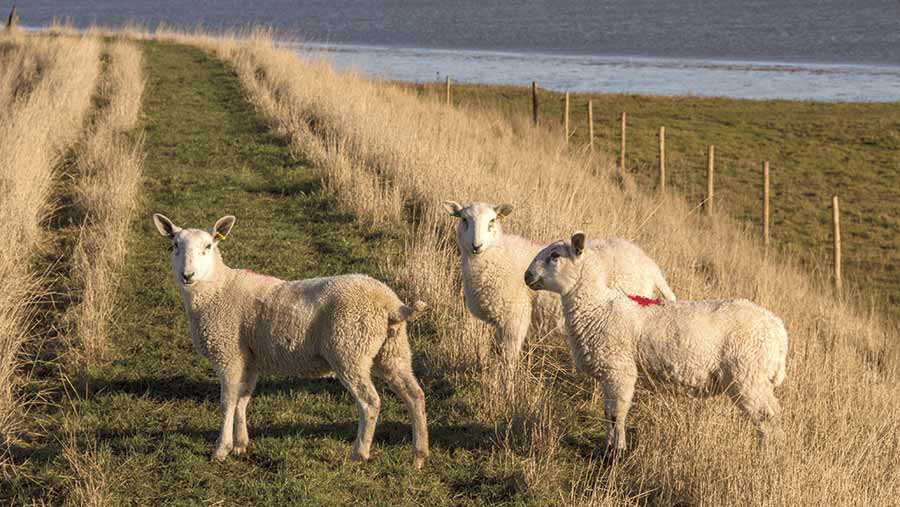Business Clinic: Grazing licences – tips on what to include’
 © FLPA/David Hosking/REX/Shutterstock
© FLPA/David Hosking/REX/Shutterstock Whether you have a legal, tax, insurance, management or land issue, Farmers Weekly’s Business Clinic experts can help.
Here, Savills’ Jon Dearsley offers advice about letting land on a grazing licence.
Q I own a 364ha farm in England which is all down to arable apart from 16ha of grass by the river which is in an Entry-Level Stewardship (ELS) scheme.
We used to have a few sheep but I got fed up with keeping them on a small scale. Please advise on allowing another producer to graze it.
A Unless you are able to exploit a niche market, it is difficult to make small-scale livestock profitable.
There is the option for another producer to graze your fields via a grazing licence.
Unlike a tenancy, where the grazier would be in occupation, a grazing licence allows them access to graze the crop but you remain in charge.
This means you would continue to claim the Basic Payment Scheme, the ELS and also benefit from any tax advantages of being the farmer, but the grazier must provide cross-compliance records and make sure the land is grazed within the stipulations of the ELS agreement.
See also: Should I calve sucklers at two years instead of three?
Before entering into a grazing licence you would need to find a suitable grazier and agree your heads of terms.
You may want to approach stock people already known to you.
If you are considering someone you don’t know, check out where they are grazing other land to make a sure you are happy with their approach and husbandry.
 Jon Dearsley
Jon DearsleyAssociate director
Savills food and farming
While you can agree anything you like, if you are looking to continue to benefit from the subsidy and tax benefits you must make sure you remain in occupation, both on paper and in practice.
Typically, you will remain responsible for fence repairs, provide water and take care of fertilising the grass and any weed control.
Generally the landowner will be responsible for hedge maintenance but either way the responsibility should be set out clearly.
The grazier would be allowed access to graze and in return pay a fee either per acre or per head. They would normally undertake the daily checks and be the “keeper” of the animals.
If you are going to help with any stock work, this should be agreed separately.
You might choose to impose limits on the stocking rate and when the grazier is allowed to enter the land.
All the responsibilities of both parties, along with the agreed fee, should be recorded in a written grazing licence to avoid any ambiguity.
It is also important to consider changes to holding numbers and the Animal Health and Veterinary Laboratories Agency and Trading Standards need to be informed, along with your insurer.
Do you have a question for the panel?
 Outline your legal, tax, finance, insurance or farm management question in no more than 350 words and Farmers Weekly will put it to a member of the panel. Please give as much information as possible.
Outline your legal, tax, finance, insurance or farm management question in no more than 350 words and Farmers Weekly will put it to a member of the panel. Please give as much information as possible.
Send your enquiry to Business Clinic, Farmers Weekly, RBI, Quadrant House, The Quadrant, Sutton, Surrey SM2 5AS.
You can also email your question to fwbusinessclinic@rbi.co.uk.
